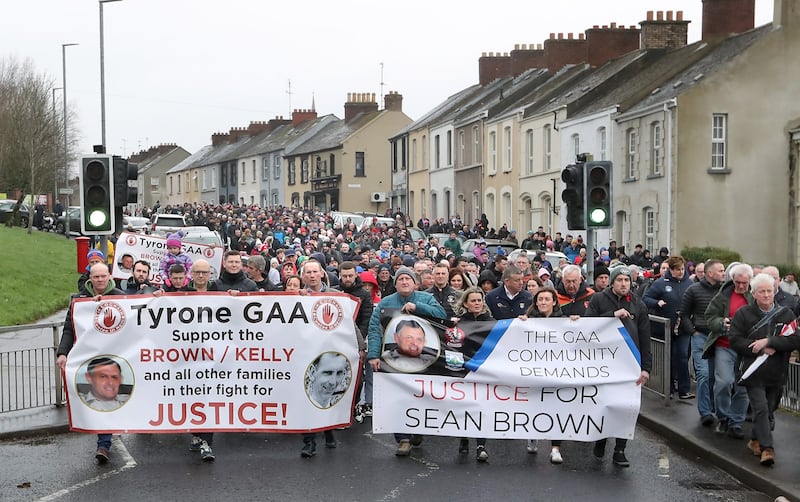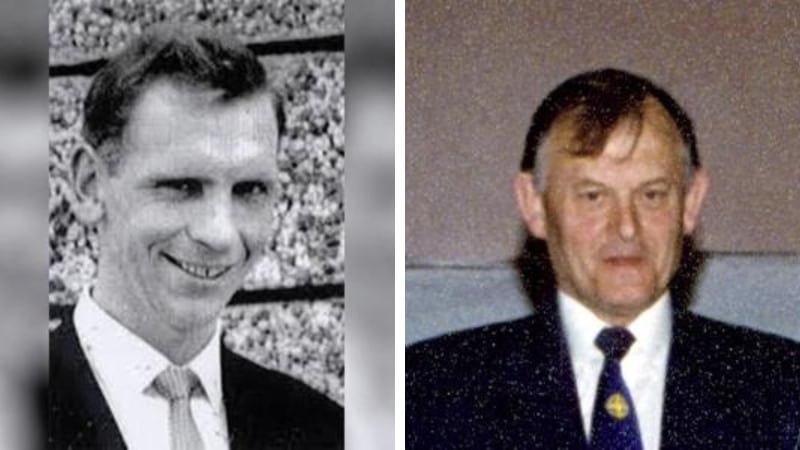GAA president Larry McCarthy will use his address at Annual Congress in two weeks’ time to highlight the Association’s opposition to the British government’s Troubles Legacy Act with particular reference to the murders of GAA volunteer Sean Brown and Patsy Kelly.
Esteemed Bellaghy Wolfe Tone’s GAC chairman Sean Brown was locking the gates of his club’s grounds when he was abducted and brutally murdered a short distance away in 1997.
Twenty-three years previous, Trillick clubman Patsy Kelly was murdered in similar circumstances on his way home from work.
No-one has been convicted of either murder and the British government’s Troubles Legacy Act means there is a prospect that the killers of both GAA members could escape justice.

The controversial act will close the window on new Troubles-era court cases or inquests beginning and mean that ongoing Troubles-related inquests must be concluded by May 1. The Brown and Kelly families are anxious that the inquest into the murders won’t be finished by that deadline.
“It (the legacy act) will come up at Congress,” confirmed GAA President McCarthy.
GAA director general, Tom Ryan, devoted a page of his annual report to the act and said “the whole of the Association should stand behind” the bereaved families in their quest for justice.
Ryan said that Sean Brown, who was seized while performing an everyday, but essential, task epitomised the volunteer commitment at the core of the GAA.
“It is now nearly 27 years since Sean Brown was callously murdered while closing the Bellaghy Wolfe Tones’ complex in South Derry, the kind of job we have all done and without which the GAA as an organisation cannot function,” he wrote.
“In many ways the simple and essential task he was doing epitomises the volunteer commitment that fuels our Association.
“In the intervening period the family have bravely and admirably staged a campaign seeking justice and the truth about what happened on that awful night. It has been a long road and an agonising process, Even at this late stage they are still stumbling across revelations via court hearings.
“Worse still, the decision of the British government to introduce a legacy act means that the inquest process is on a time clock which will run out on May 1.”
Ryan went on to describe the legacy act as a “blunt instrument” which was being brought to bear on families who deserved justice for their lost loved ones.
“I write about Sean Brown because he was a highly active and respected member of our Association, a pillar of his community and a valued member of the wider GAA family,” he added.
“I think too of the family of Patsy Kelly from Trillick and the countless other families who seek the truth and some measure of closure and who are being thwarted by the decision of the British government to proceed along this route.
“It is a blunt instrument inflicted on people who deserve so much better. I believe that all right-minded people will offer their unwavering and unequivocal support to the Brown family and the Bellaghy club for the steadfast and dignified way that they have pursued the truth for more than two and-a-half decades.”


